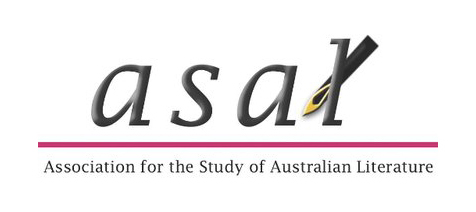08 Aug Vale Elizabeth Webby
Vale Elizabeth Webby
It is with enormous sadness that ASAL mourns the death of Emeritus Professor Elizabeth Webby, AM. Elizabeth did more to build the discipline of Australian literature than anyone else in the field. As a scholar, mentor, teacher, and advocate she was extraordinary, and her generosity has shaped the field in lasting ways.
Elizabeth’s research never lost sight of the pleasure of reading. Her research expertise included both a commitment to contemporary writing and a deep interest in the history and circumstances of literary production and readership. Her ground-breaking work on the circulation and reception of literature in Australia in the early nineteenth-century extended into a career-long interest in both nineteenth-century Australian writing (especially poetry), and histories of reception and readership. At the same time, her career was characterised by a commitment to contemporary writing and writers from Australia and Aotearoa New Zealand. She was Patron and Chair of the NSW Writers’ Centre, and judged numerous Australian literary prizes including the first prize for Australian women’s writing, the Nita B. Kibble Award, and the Miles Franklin Award.
The breadth of her research is remarkable. She published research on Patrick White (from her honours thesis in 1962, through to last year); on early Australian writers including Eliza Hamilton Dunlop, Charles Harpur, Rolf Boldrewood, Miles Franklin, Marcus Clarke, Henry Handel Richardson, Catherine Martin, Barbara Baynton and Henry Lawson; and on contemporary writers including Alex Miller, Joan London, Janet Frame, Jack Davis, Elizabeth Jolley and Frank Moorhouse. She wrote about periodicals, publishing history, book groups, readerships, and about short stories, theatre, cinema and the novel.
Elizabeth was a feminist scholar, as was evident in her involvement in key projects recovering and promoting the work of Australian women writers, and even more so in her tireless work in recognising, encouraging and supporting women writers and scholars at all stages of their careers.
As Chair in Australian Literature at the University of Sydney from 1990 to 2007, Elizabeth presided over an Australian Literature Major that included multiple standalone courses on Australian literature. She gave tutorials in her office in the Woolley Building, where her desk was piled well above head height with papers annotated in her famously illegible handwriting. In this role she was a steely and effective advocate for the discipline, and was instrumental in supporting works of scholarly infrastructure including the Austlit Database, numerous scholarly editions, and the online
Australian Poetry Library. She edited Southerly for more than a decade and was a founding member of ASAL, serving as President from 1988 to 1990.
Much of Elizabeth’s contribution to the field took the form of the daily and less visible acts of collegiality and generosity that enable a discipline to thrive: reading drafts, offering advice and encouragement. She supervised many honours and PhD students who went on to have careers in the field. She examined theses, refereed essays and wrote book reviews long into her retirement, penning more than 80 reviews across her career.
In 2004 Elizabeth was made a Member of the Order of Australia (AM) “For service to the study, teaching and promotion of Australian literature, for support to Australian authors, and for fostering links between the academic and general reading communities.”
Australian literary studies, as Elizabeth Webby professed it, is a discipline in which literary experimentation and popular fiction, fiction, film and drama, studies of form and studies of reception, all have a place, and where writers and readers of all kinds of literary works are front of mind. It is a discipline of heft, promise and diversity, in which those early in their careers are
supported and mentored, in which collegiality and good humour are the modus operandi. In the context of a field where material supports are not what they once were, the legacy of Elizabeth’s scholarship, generosity and energy continues.
– Julieanne Lamond


